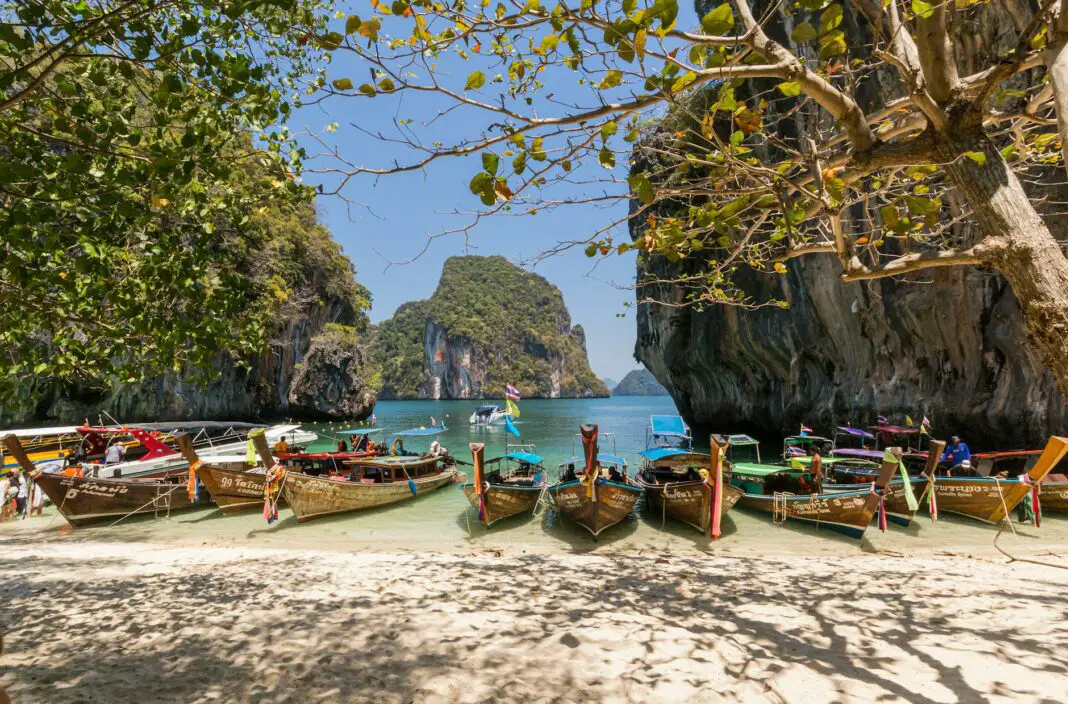Are you ready for an adventure that transcends the typical travel experience? Thailand, a jewel of Southeast Asia, is weaving a new narrative through its eco-tourism initiatives. This blog post explores how eco-tourism in Thailand is reshaping travel for good, transforming the way we engage with the natural world and local cultures. With a focus on sustainability and responsible travel, you’re about to discover how this captivating country is fostering a more ethical approach to tourism. From lush jungles to serene beaches, Thailand offers both breathtaking beauty and the promise of a brighter future through its eco-friendly initiatives.
This guide will navigate you through Thailand’s eco-tourism transformation, highlighting the benefits it brings to the environment, local communities, and travelers alike. By the end of your reading journey, you will have a clear understanding of how choosing eco-friendly travel options can not only enhance your experience but also contribute to preserving the enchanting landscapes and rich heritage of Thailand.
Table of Contents
- What is Eco-Tourism in Thailand?
- Benefits of Eco-Tourism
- Popular Eco-Friendly Destinations
- Actionable Insights for Eco-Conscious Travelers
- Embracing Responsible Travel: A New Way Forward
- Frequently Asked Questions
What is Eco-Tourism in Thailand?
Eco-tourism in Thailand is a movement that embraces sustainable travel, focusing on conserving the environment and enhancing the well-being of local communities. This form of travel encourages visitors to immerse themselves in natural surroundings while minimizing their ecological footprint, allowing travelers to connect with the magnificence of nature in a conscientious way. Instead of simply visiting popular tourist hotspots, eco-tourism invites you to experience Thailand’s landscapes through responsible practices, showcasing the incredible biodiversity and cultural richness that thrives within.nnIn recent years, more travelers have sought meaningful experiences that go beyond superficial attractions. As Thailand has responded to this demand, a plethora of eco-friendly accommodations has emerged, offering unique stays ranging from treehouses in the rainforest to beachfront bungalows powered by solar energy. By engaging in eco-tourism, visitors are not only enriching their own experiences but also contributing to the preservation of Thailand’s natural environment and heritage. This exciting shift invites everyone to play a role in maintaining the delicate balance between exploration and conservation.
Benefits of Eco-Tourism
The advantages of eco-tourism extend far beyond the individual traveler. One of the most compelling benefits is the positive impact on local communities. When tourists engage with eco-friendly practices, they often choose to stay in locally-owned accommodations or participate in community-led tours. This translates into a direct financial benefit for residents, fostering economic growth and encouraging the preservation of traditional ways of life. Moreover, these interactions allow visitors to gain deeper insights into local cultures, creating memorable experiences driven by genuine engagement rather than mere observation.nnFurthermore, ecotourism promotes conservation efforts, helping to safeguard Thailand’s rich ecosystems and wildlife. Many organizations within the eco-tourism sector invest a portion of their profits into environmental protection initiatives, such as reforestation projects or wildlife sanctuaries. Such actions not only preserve natural habitats but also educate travelers about the importance of biodiversity. By choosing eco-tourism as an option, you help champion the cause for a sustainable future, making a tangible difference with every trip.
Popular Eco-Friendly Destinations
When considering an eco-friendly travel itinerary in Thailand, several breathtaking destinations immediately stand out. Chiang Mai, nestled in the mountainous north, is famous for its commitment to sustainability. Here, visitors can partake in programs that involve organic farming or learn about ethical elephant sanctuaries, where elephants are cared for in a natural environment. These experiences are not just entertaining but enriching, allowing travelers to connect with these magnificent creatures responsibly.nnAnother must-visit location is Koh Tao, a stunning island renowned for its commitment to coral reef protection. As tourists engage in snorkeling or diving, they can also participate in reef clean-up initiatives, ensuring that the underwater ecosystems remain thriving and vibrant. Additionally, the national parks scattered throughout Thailand —like Khao Sok and Erawan— offer opportunities for trekking and wildlife watching. These parks are beautifully preserved, allowing travelers to relish in unspoiled landscapes while discovering the vital importance of conservation. Each of these exemplary destinations showcases Thailand’s dedication to eco-tourism, providing unforgettable memories while promoting sustainable practices.
Actionable Insights for Eco-Conscious Travelers
For those wishing to embark on an eco-friendly adventure in Thailand, a few guidelines can enhance your experience while promoting sustainable practices. Start by opting for transportation methods that reduce your carbon footprint. Instead of air travel between destinations, consider taking scenic train rides or buses, which provide an opportunity to soak in more of Thailand’s stunning landscapes while supporting local transportation.nnWhen it comes to accommodations, prioritize eco-lodges or hotels that practice sustainability, whether through renewable energy initiatives or organic farming. Many establishments offer shortcuts to responsible tourism as they provide insights into local culture and customs, ensuring that your travel is both enriching and beneficial to the local area. Moreover, always remember to respect wildlife and natural settings by minimizing waste, sticking to marked trails, and avoiding single-use plastics. By applying these straightforward actions, you can significantly contribute to the eco-tourism movement and ensure that your travels leave a lasting legacy of care and respect.
Embracing Responsible Travel: A New Way Forward
As eco-tourism takes root in Thailand, it calls for a broader movement toward responsible travel on a global scale. By recognizing our role as travelers, we have the power to influence how our actions affect the environment and the communities we visit. The emerging trend among travelers to seek out eco-friendly experiences signals a shift in priorities, where exploration and conservation go hand-in-hand. This evolving mindset empowers us to advocate for sustainable practices while experiencing the wonders of our world.nnChoosing to partake in eco-tourism in Thailand is not just about enjoying the beauty of the nation; it is about forging a path that upholds ethical standards and protects future generations. As you savor the incredible sights, indulge in authentic local cuisine, and discover the heart of Thai culture, remember that you are part of a larger narrative—one that champions a healthy planet and thriving communities. Your travel choices can inspire change and foster a more conscientious approach to tourism that others will emulate.
Frequently Asked Questions
1. What is eco-tourism?
Eco-tourism is a sustainable travel model that emphasizes the conservation of natural resources, focuses on environmental education, and supports local communities. By prioritizing environmentally responsible practices, eco-tourism seeks to minimize the impact of tourism on the environment while enriching the travel experience for visitors.
2. How can I participate in eco-tourism in Thailand?
To engage in eco-tourism, select eco-friendly accommodations, join responsible tour operators, and participate in conservation activities. Opt for low-impact transportation options and respect local customs and wildlife during your travels to make a positive contribution.
3. Is eco-tourism beneficial for local communities?
Yes, eco-tourism provides significant benefits to local communities by promoting economic growth, preserving cultural identities, and fostering environmental stewardship. When travelers support local businesses, they contribute directly to the livelihoods of residents, encouraging sustainable practices in the region.
4. What are some top eco-friendly locations in Thailand?
Some of the top eco-friendly destinations include Chiang Mai, Koh Tao, Khao Sok National Park, and Erawan National Park. These locations offer unique eco-tourism experiences, from participating in ethical wildlife sanctuaries to enjoying pristine natural settings.
Experience the Power of Positive Travel: Take Action Now
As you consider your next trip to Thailand, the call for ethical and responsible travel is unmistakable. Embracing eco-tourism not only enriches your journey but contributes to preserving the planet and supporting local communities. Now is the perfect moment to prioritize sustainability and align your travel choices with a brighter, more equitable future for both the allure of this beautiful country and the world beyond its borders. Embrace the transformation that eco-tourism offers, and become a part of the solution by choosing to travel with care.
Image Credit: Pexels





